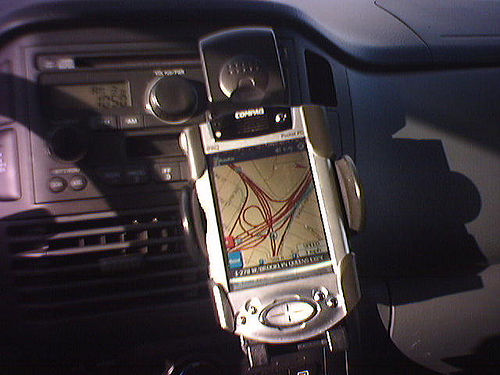
Contemporary society enjoys a lot of modern tools that make people’s lives more convenient. One of these is the GPS (global positioning system) device. It is used in a number of industries; especially transportation and travel.
GPS is a navigational system that provides information that helps ship captains and aircraft pilots, as well as vehicle operators, in finding their way or ascertaining their position. Aside from this, it is widely used in tracking many things; including people, pets, children, and even things. It is also used to bookmark travel destinations or to pinpoint certain locations that you don’t want to miss. Insurance companies and other financial institutions are also beginning to utilize the GPS to their advantage.
GPS and How It Is Used in Auto Insurance
Auto insurance companies have discovered several ways to utilize the GPS. For one, it is used in monitoring a person’s driving abilities. It tracks how one drives a vehicle, continuously keeping a record of how abruptly or smoothly a driver brakes, how fast he goes, or how he accelerates. All of the information gathered will help insurers in finding out whether an individual is a good driver or not. If the GPS concludes that he is a “safe” driver, then the insurance company will offer him a nice discount on his premiums.
Moreover, the GPS can help drivers to avoid road accidents and it works as an anti-theft device, too. It would be much easier to locate a stolen vehicle if it is equipped with a GPS tracking device. Incidentally, cars that are outfitted with these modern tools that lower their chances of getting stolen are usually cheaper to insure as well.
Factors That Affect GPS Reliability
Nevertheless, you should not always put your total confidence in a GPS device, especially if there are things in the environment that could undermine its accuracy. Factors that can create inaccuracies or delay signals are as follows:
1. Atmospheric Conditions
Although it is assumed that the speed of light is constant, there are atmospheric conditions that can warp the rate by which light travels. Elements found in the atmosphere, particularly in the ionosphere and troposphere, can affect the refraction of GPS waves, which then have effects on the speed and accuracy of signals that are transmitted and received.
2. Multipath
GPS signals are communicated much faster and with higher accuracy if they travel in straight lines. When signals reflect off obstructions or hard surfaces; like walls, trees, buildings or canyons; they travel a longer distance, which can then create small errors or inaccuracies.
3. Satellite Presence
GPS satellites broadcast signals to the Earth. But satellite transmission can be slightly affected by the gravitational pull of the sun and moon, and errors stemming from this are known as ephemeris errors. Although the miscalculations could be quite small, which is probably by about 1 to 2 meters only, the disparity can become quite a problem when large distances are covered.
4. GPS Quality
The quality of your GPS device will also affect data accuracy. There are more risks when using low quality gadgets, particularly when it comes to receiving and processing data.
This blog post was contributed by Claire Winters, a freelance writer who often blogs about car-related issues. Some of her articles about automobile safety and insurance have been used by http://www.advantageinsagents.com/contact and other business sites.

